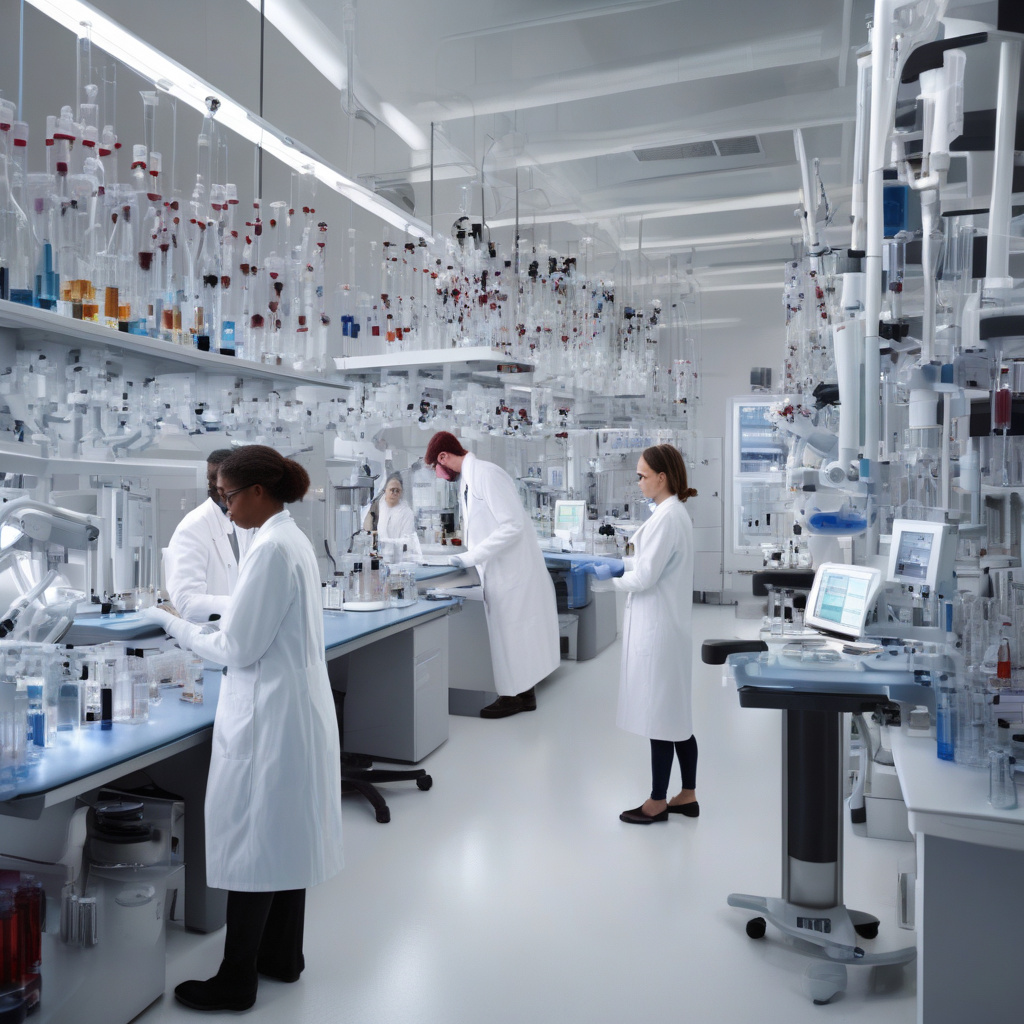Liverpool Scientists Develop Groundbreaking Low-Cost AI Blood Test for Alzheimer’s
A groundbreaking advancement in the field of Alzheimer’s disease has emerged from the laboratories of Liverpool scientists. The development of a new handheld test that can detect Alzheimer’s biomarkers in blood within minutes is poised to revolutionize the diagnosis and management of this debilitating condition. This innovative technology not only promises earlier detection but also offers a more affordable solution that could have far-reaching implications worldwide.
Alzheimer’s disease, a progressive neurological disorder that affects millions of people globally, has long been challenging to diagnose accurately, particularly in the early stages. Traditional diagnostic methods often involve expensive and invasive procedures, making them inaccessible to many individuals, especially in resource-limited settings. However, the new AI-powered blood test developed by Liverpool scientists has the potential to address these limitations effectively.
By leveraging the power of artificial intelligence, this cutting-edge test can identify specific biomarkers associated with Alzheimer’s disease with exceptional speed and accuracy. The ability to detect these biomarkers in a simple blood sample not only streamlines the diagnostic process but also eliminates the need for more invasive and costly tests. As a result, patients can receive a timely diagnosis, allowing for earlier intervention and improved disease management.
One of the most significant advantages of this innovative blood test is its cost-effectiveness. By offering a more affordable diagnostic solution, Liverpool scientists have paved the way for greater accessibility to Alzheimer’s testing, both in developed countries and underserved regions. This low-cost approach has the potential to democratize Alzheimer’s diagnosis, ensuring that more individuals can benefit from early detection and timely interventions.
Moreover, the portability of the handheld device means that it can be used in a variety of healthcare settings, from traditional hospitals to remote clinics. This versatility enhances the test’s reach and impact, particularly in regions where access to specialized diagnostic facilities is limited. By bringing cutting-edge technology directly to the point of care, Liverpool scientists have demonstrated their commitment to improving global health outcomes.
The implications of this breakthrough in Alzheimer’s diagnostics extend beyond individual patients. Early detection of the disease not only allows for prompt medical intervention but also opens doors for innovative research and drug development. By identifying individuals at risk of Alzheimer’s at an earlier stage, researchers can explore new therapeutic avenues and potentially slow down the progression of the disease.
As Liverpool scientists continue to refine and validate their AI-powered blood test, the future of Alzheimer’s diagnosis looks more promising than ever. With a focus on affordability, efficiency, and accessibility, this innovative technology has the potential to transform the way we approach and understand Alzheimer’s disease on a global scale. By harnessing the power of artificial intelligence, researchers have taken a significant step towards early detection, personalized treatment, and ultimately, a world without Alzheimer’s.
In conclusion, the development of a low-cost AI blood test for Alzheimer’s by Liverpool scientists represents a significant milestone in the fight against this devastating disease. With its potential to revolutionize diagnostics, improve patient outcomes, and drive advancements in research, this breakthrough technology holds immense promise for the future of Alzheimer’s care. As we look ahead, it is clear that innovation and collaboration will continue to play a crucial role in shaping a world where Alzheimer’s is no longer a looming threat but a manageable condition.
Alzheimer’s, Liverpool, AI, Blood Test, Innovation












